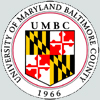| |||||||||||||||||||
Tips:  Range on the Protein: Protein ID Protein Position Domain Position: 
|
|---|
Weblogos are Copyright (c) 2002 Regents of the University of California
| DMDM_info@umbc.edu | 1000 Hilltop Circle, Baltimore, MD 21250 | Department of Biological Sciences | Phone: 410-455-2258 |




 PDIa family, N-terminal EFP1 subfamily; EFP1 is a binding partner protein of thyroid oxidase (ThOX), also called Duox. ThOX proteins are responsible for the generation of hydrogen peroxide, a crucial substrate of thyroperoxidase, which functions to iodinate thyroglobulin and synthesize thyroid hormones. EFP1 was isolated through a yeast two-hybrid method using the EF-hand fragment of dog Duox1 as a bait. It could be one of the partners in the assembly of a multiprotein complex constituting the thyroid hydrogen peroxide generating system. EFP1 contains two TRX domains related to the redox active TRX domains of protein disulfide isomerase (PDI). This subfamily is composed of the N-terminal TRX domain of EFP1, which contains a CXXS sequence in place of the typical CXXC motif, similar to ERp44. The CXXS motif allows the formation of stable mixed disulfides, crucial for the ER-retention function of ERp44.
PDIa family, N-terminal EFP1 subfamily; EFP1 is a binding partner protein of thyroid oxidase (ThOX), also called Duox. ThOX proteins are responsible for the generation of hydrogen peroxide, a crucial substrate of thyroperoxidase, which functions to iodinate thyroglobulin and synthesize thyroid hormones. EFP1 was isolated through a yeast two-hybrid method using the EF-hand fragment of dog Duox1 as a bait. It could be one of the partners in the assembly of a multiprotein complex constituting the thyroid hydrogen peroxide generating system. EFP1 contains two TRX domains related to the redox active TRX domains of protein disulfide isomerase (PDI). This subfamily is composed of the N-terminal TRX domain of EFP1, which contains a CXXS sequence in place of the typical CXXC motif, similar to ERp44. The CXXS motif allows the formation of stable mixed disulfides, crucial for the ER-retention function of ERp44. No pairwise interactions are available for this conserved domain.
No pairwise interactions are available for this conserved domain.








